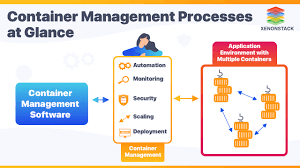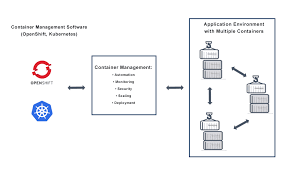Why Containerized Applications are the Future of IT Management

Why Containerized Applications are the Future of IT Management
The rise of containerized applications is one of the most exciting developments in IT management in recent years. Containers offer a number of advantages over traditional virtualization, including greater portability, better performance, and more efficient resource utilization.
As containers have become more popular, a number of vendors have emerged offering tools and services for managing them. However, there is still a lack of maturity in the market, and many organizations are struggling to figure out the best way to use containers to meet their needs.
Despite the challenges, it’s clear that containerized applications are the future of IT management. With their benefits, it’s only a matter of time before they become the standard way to deploy and manage software applications.
windows python install
If you’re not familiar with containers, they’re a way to package an application so that it can run in any environment, regardless of what dependencies or configurations are present. This makes them ideal for 12-factor applications, which are designed to be portable and easy to deploy.
Windows don’t have great support for containers—yet. But that’s changing, thanks in part to the work of the Docker community. You can now install Docker Desktop on Windows and use it to run containers locally.
Python is a great language for building 12-factor applications, so it’s no surprise that there are a number of ways to install Python on Windows. The most popular is probably the Anaconda, which comes with a lot of bells and whistles. But if you just want to get up and running with Python in a container, I recommend the new Windows Subsystem for Linux (WSL).
WSL is a feature in Windows 10 that allows you to run Linux applications natively. It’s still in beta, but it’s been stable enough for me to use it as my primary development environment. And best of all, it comes with a full-fledged Ubuntu installation, which includes Python
To get started, first enable WSL:
1. Search for “Turn Windows features on or off” in the Start menu and open it.
2. Check the box next
windows bat file
Containerized applications are becoming increasingly popular as a way to manage IT infrastructure. There are many benefits to using containers, including the ability to isolate applications from one another and the host operating system. This makes it easy to deploy and manage applications in a consistent environment.
One of the key benefits of using containers is that they can be easily deployed on any platform that supports them. This includes Windows, Linux, and macOS. In addition, containers can be deployed on cloud platforms such as Amazon Web Services (AWS) and Microsoft Azure.
Another benefit of using containers is that they allow for greater portability of applications. For example, a containerized application can be easily moved from one server to another without the need to reconfigure the application. This makes it possible to quickly scale an application as needed.
Finally, containers offer better security than traditional virtualization approaches. This is because each container is isolated from other containers and the host operating system. This isolation prevents malicious code from spreading between containers or from gaining access to sensitive data on the host system.
Containerized applications are portable and can be run on any platform.
This makes them ideal for use in a microservices architecture, where each application can be deployed and run independently.
Containerized applications are also easy to scale, as they can be run on multiple servers concurrently.
This makes them perfect for use in a distributed system, where the load can be balanced across multiple servers.
Containers are isolated from each other, so one application cannot affect another.
This assures that an application will always have the same resources available to it, no matter where it is deployed.
Additionally, because containers are lightweight, they can be spun up quickly and use far fewer resources than traditional virtual machines.

This makes them ideal for microservices-based applications which are composed of many small services.
Applications running in containers can be scaled up or down easily according to needs.
This is thanks to the way containers work. Containers package up an application and its dependencies into a single unit, which can then be run on any server. This means that you can start with a small container on a single server and scale it up to multiple containers on multiple servers as needed.
Scaling up or down is as simple as starting or stopping containers. There is no need to reconfigure the underlying infrastructure each time. This makes it very easy to respond to changing demand without over-provisioning or under-provisioning resources.
Containerized applications are easy to deploy and update.
Applications that are containerized are easy to deploy and update. This is because the application is packaged with all of its dependencies, so there is no need to worry about compatibility issues. Additionally, containers can be deployed on any platform that supports Docker, making it easy to scale your application.
containers offer better security than traditional virtualization methods.
This is because containers isolate applications from one another and the underlying operating system. This means that if one container is compromised, the others are not affected.
In addition, containers are often used in conjunction with microservices-based architectures. This means that each application is broken down into small, independent services that can be run in their own containers.
If one service fails, it does not impact the other services. This makes for a more resilient system overall.
ssh client windows 10
Containerized applications offer many benefits over traditional, non-containerized applications. They are easy to deploy and manage, they are highly portable, and they offer superior performance.
ssh client windows 10 is a great option for managing containerized applications. It is a free and open-source tool that can be used to manage containers on a variety of platforms, including Windows 10.
ssh client windows 10 offers a number of advantages over other tools:
It is easy to use and has a simple interface.
It is lightweight and fast.
It is highly configurable.
It supports multiple platforms.
It is free and open source.
